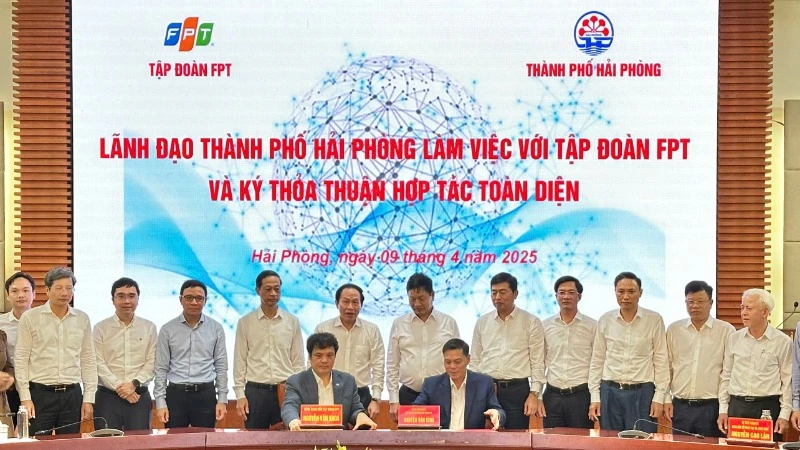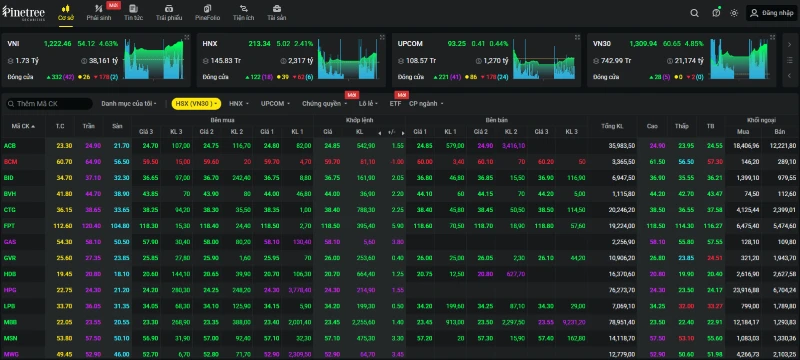Statistics from the State Bank of Vietnam (SBV) show that more than 60% of financial transactions are now conducted via digital banking. In fact, more than 87% of adults have a payment account at a bank and many banks have processed more than 95% of transactions via digital channels.
STRONG TRANSFORMATION OF DIGITAL BANKING MODEL
According to the State Bank of Vietnam (SBV), by the end of 2024, there will be about five banks under special control, of which three have implemented restructuring measures through digital transformation. By applying digital banking technology, weak banks can significantly reduce operating costs, limit financial risks and expand customer access.
Meanwhile, research by McKinsey & Company also shows that integrating AI and Big Data in financial management can help banks reduce credit risk by up to 30% and improve fraud detection capabilities. Modern digital banking systems are capable of monitoring unusual transactions and detecting fraud risks immediately.
According to the State Bank of Vietnam (SBV), by the end of 2024, there will be about five banks under special control, of which three have implemented restructuring measures through digital transformation. By applying digital banking technology, weak banks can significantly reduce operating costs, limit financial risks and expand customer access.
This is also demonstrated in reality when immediately, three out of four banks, after mandatory transfer and restructuring, have strongly oriented towards a digital banking model.
For example, after being taken over by HDBank, Vikki Digital Bank implemented a strategy of investing heavily in technology to build a modern digital bank, providing flexible and convenient financial services.
After MB took over OceanBank and changed its name to Modern Bank of Vietnam (MBV), it also comprehensively restructured and completely converted to a digital banking model, integrating AI and Big Data technology to optimize processes and enhance customer information security.
As for VCBNeo, after Vietcombank took over CBBank, it has shifted to become a digital bank specializing in supporting small and medium-sized enterprises to access capital more easily and effectively.
TPBank General Director Nguyen Hung said that TPBank has comprehensively applied cloud computing, Big Data and artificial intelligence (AI) technology in its operations. “The application of the most modern technologies helps TPBank save time in developing and operating new models by 40%. Customer experience at TPBank is also enhanced.
With the support of modern technologies, TPBank has built an ecosystem of advanced banking products and services, thereby enhancing the bank's competitiveness in the market by increasing the ability to support customers, from meeting diverse needs to providing rich utility services through digital transaction channels," Mr. Nguyen Hung analyzed.
Associate Professor, Dr. Nguyen Huu Huan, lecturer at Ho Chi Minh City University of Economics, assessed that banks are currently converting to digital models, drastically cutting staff to optimize operational efficiency and reduce operating costs. That is also the reason why banks choose to convert to digital banks instead of continuing to maintain the traditional banking model. “Maintaining physical branches costs money in terms of rental space, personnel, and other operating costs. Meanwhile, digital banks can operate mainly through online platforms, reducing dependence on branches and saving on infrastructure costs,” Mr. Nguyen Huu Huan emphasized.
SOLVING SAFETY AND SECURITY PROBLEMS
In addition to the practical benefits, digital transformation in the banking sector also poses many challenges for the entire banking system. Banks will face many major problems, especially challenges in ensuring data security and confidentiality, investment costs, operational management and staff training.
Associate Professor, Dr. Nguyen Huu Huan said that digital transformation in the banking industry will apply technologies in the fourth industrial revolution such as AI, Big Data, Blockchain and IoT.
Therefore, he realized that the most difficult thing in the digital transformation of banks is technology, requiring banks to invest heavily in technology infrastructure, software and staff training. On the other hand, digital transformation also depends on the vision, thinking and orientation of each bank, so digital transformation must first be a change in thinking - this is the prerequisite and also the biggest challenge.
According to Mr. Nguyen Hung, without a strong enough security system, banks may face the risk of losing customer data, being attacked by cyberattacks or encountering serious financial fraud. Therefore, banks need to invest heavily in modern security solutions such as data encryption, multi-layer authentication (MFA) and AI applications in transaction monitoring.
MB's leadership representative also said that in order for digital banking transformation to be more effective, it is necessary to issue specific regulations on banking data security, ensuring network security standards and risk management processes.
Banks need to take clear responsibility for security breaches and impose strict sanctions for non-compliance. In addition, the banking system needs to identify risks and regularly update security policies to protect customers' interests and enhance reputation in the context of increasingly complex cyber security.
Source: https://nhandan.vn/tang-toc-but-pha-trong-so-hoa-hoat-dong-ngan-hang-post870423.html


![[Photo] Looking back at the impressive moments of the Vietnamese rescue team in Myanmar](https://vstatic.vietnam.vn/vietnam/resource/IMAGE/2025/4/11/5623ca902a934e19b604c718265249d0)




![[Photo] "Beauties" participate in the parade rehearsal at Bien Hoa airport](https://vstatic.vietnam.vn/vietnam/resource/IMAGE/2025/4/11/155502af3384431e918de0e2e585d13a)
























![[Photo] Summary of parade practice in preparation for the April 30th celebration](https://vstatic.vietnam.vn/vietnam/resource/IMAGE/2025/4/11/78cfee0f2cc045b387ff1a4362b5950f)

























































Comment (0)